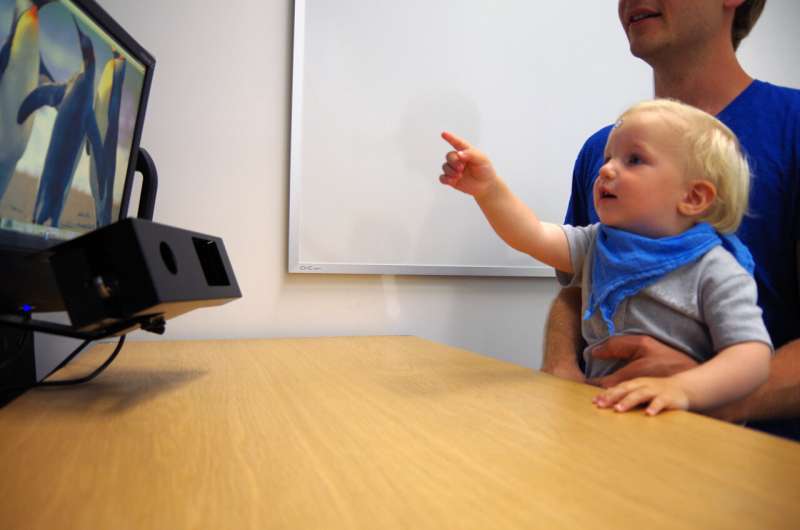Social development of infants unaffected by COVID-19 pandemic

Health issues and loss, social isolation and mental health problems—the pandemic has had a drastic effect on our society. But how have the youngest members of society been coping with these changes? Researchers at the University of Zurich have found that the presence of parents and caregivers is enough to mitigate the pandemic's negative effects on the social development of infants.
The COVID-19 pandemic has had a profound impact on our social lives. Almost overnight, people started to work from home, keep their distance and cover half their face with surgical masks. This affected small children, teenagers and adults alike. And yet, there has been very little research into the effects of pandemic-related changes on infants.
Gaze following fundamental for social development
Researchers at the University of Zurich (UZH) have now studied whether infants born during the pandemic exhibit different social behavior than same-aged infants before the pandemic. The study focused on the children's ability to follow another person's gaze. "This ability is fundamental for engaging in social interactions, building relationships and developing language skills," says Stephanie Wermelinger, who researches developmental psychology in infants and children at the Department of Psychology of UZH. If this ability is impaired, it can hamper a person's ability to interact with society, as is the case for people with autism.
Eighty infants between the age of 12 and 15 months took part in the study. They were shown different videos in which a person was gazing at one of two objects. By tracking the infants' eye movements, the researchers recorded how often and how quickly the infants followed the person's gaze. They then compared their data with eye movement data from 133 children using the same method before the pandemic.
Parents and caregivers soften effects of pandemic
The study revealed no significant behavioral differences between the children born during and before the pandemic. Children born during the pandemic followed the person's gaze just as often and quickly as the children in the pre-pandemic group. Although the pandemic meant that the children saw fewer people overall and interacted with more people who were wearing masks, they don't seem to be developing any differently to children who didn't experience any pandemic-related changes.
"We believe the unchanged social interactions with parents and caregivers at home are enough to mitigate any influence the COVID-19 pandemic might have had on infants," says author Wermelinger. These contacts could thus be sufficient to provide infants with the social input they need to develop social and emotional skills such as gaze following.
More information: Stephanie Wermelinger et al, How experience shapes infants' communicative behaviour: Comparing gaze following in infants with and without pandemic experience, Infancy (2022). DOI: 10.1111/infa.12488


















